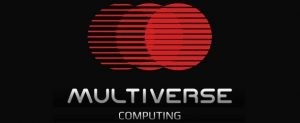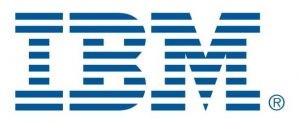Quantum News Briefs October 24: Multiverse Computing Expands to US with New San Francisco Office to Drive Quantum AI Adoption • IBM Boosts Guardium Platform to Address Shadow AI, Quantum Cryptography • Photonics on a Chip at Sandia & ASU • EuroHPC JU Selects Netherlands-based SURF to Host New Quantum Computer

Multiverse Computing Expands to US with New San Francisco Office to Drive Quantum AI Adoption

Multiverse Computing, a global leader in quantum AI software solutions, has announced its expansion to the U.S. with the opening of an office in San Francisco. The entry into the U.S. enables Multiverse Computing to accelerate adoption of its AI and quantum-based solutions by U.S.-based customers, including government and businesses.
The San Francisco branch of Multiverse Computing will be led by Chris Zaharias who was recently named Vice President of Sales. Chris has managed sales at numerous venture-funded software startups, including Omniture, Efficient Frontier which was acquired by Adobe and the first firm to apply algorithms to the optimization of paid search advertising, his own SaaS firm SearchQuant which had 400 startup customers, and 5,000-person AI data annotation firm iMerit.
Recently, Multiverse Computing was selected to participate in the 2024 AWS Generative AI Accelerator program – a competitive program that selected 80 startups out of thousands of applicants to receive AWS credits, mentorship, and other resources to further research into AI and ML and expand their businesses.
With the help of this program, Multiverse Computing plans to expand the capabilities of CompactifAI, a software that uses tensor networks to optimize large AI models by creating smaller, more efficient versions. CompactifAI reduces the significant energy demands required to train and run large language models (LLMs) like ChatGPT and Bard.
In Other News: Security Week Reports “IBM Boosts Guardium Platform to Address Shadow AI, Quantum Cryptography”
 IBM is updating and upgrading its Guardium platform to provide security for the two primary new technology problems: AI models and quantum safety as reported by Kevin Townsend in October 23 Security Week.
IBM is updating and upgrading its Guardium platform to provide security for the two primary new technology problems: AI models and quantum safety as reported by Kevin Townsend in October 23 Security Week.
IBM Guardium AI Security and IBM Guardium Quantum Safe combine to form the newly launched IBM Guardium Data Security Center, which operates across the entire enterprise hybrid infrastructure.
The former is designed to help protect enterprise gen-AI deployments from vulnerabilities and governance failings for both official and shadow AI installations. While security teams are aware of, and can monitor the official use of AI models, the ease with which any of the many thousands of free open source AI models can be downloaded from repositories such as Hugging Face is leading to the new phenomenon of shadow AI.
In Other News: Sandia National Labs Reports “Photonics on a Chip at Sandia and ASU”
Sandia National Laboratories and Arizona State University, two leading research institutions, are working together to advance quantum technology by shrinking large optical systems into compact integrated microsystems as reported by Sandia National Labs.
Nils Otterstrom, a physicist at Sandia who specializes in integrated photonics, is leading efforts to miniaturize these optical systems. This breakthrough promises enhanced performance and scalability, with applications ranging from advanced computing to secure communications.
Otterstrom has been collaborating with Senior Director of Quantum Networking at Arizona State  University Joe Lukens. Lukens is the leading expert on using the frequency of light to carry quantum information for quantum computing and networking systems.
University Joe Lukens. Lukens is the leading expert on using the frequency of light to carry quantum information for quantum computing and networking systems.
This effort was recently formalized through a new Cooperative Research and Development Agreement funded by the Quantum Collaborative. The Quantum Collaborative brings together academic and research institutions — including national labs — to advance quantum information and technology research, as well as education and workforce development.
“The inspiration for the Quantum Collaborative is the recognition that the future is quantum. If we’re going to be successful, it cannot be done by single investigators or even single institutions; it’s just not going to be possible,” Lukens said. “The collaborative is an intentional network of like-minded individuals who are interested in building up quantum information technology, and it’s a way for us to connect and work together.”
The state of Arizona funds the Quantum Collaborative and Arizona State University manages the initiative.
In Other News: DCD Reports “EuroHPC JU Selects Netherlands-based SURF to Host New Quantum Computer”
European High-Performance Computing Joint Undertaking (EuroHPC JU) has selected Netherlands-based SURF to host and operate a new quantum computer, in coordination with QuantumDelta NL as reported Charlotte Truman in October 23 DCD, The system will be located at the Amsterdam Science Park and integrated into the Dutch national supercomputer,
The EuroSSQ-HPC consortium – made up of seven partners across three countries, including SURF, GENCI, and the Delft University of Technology – will jointly operate the quantum computer, handling user support and all integration activities.
Based on semiconductor spin qubits, in its initial phase, the quantum computer will offer a minimum of 16 physical qubits. The unnamed system is the first EuroHPC quantum computer to use semiconductor spin-qubit technology and in a statement, the EuroHPC JU said its deployment aligns with its goal of providing European users with access to a diverse range of quantum computing platforms.
Semiconductor spin qubit technology holds great potential for large-scale quantum information processing, primarily due to the qubits’ smaller physical size, which allows for high scalability.














